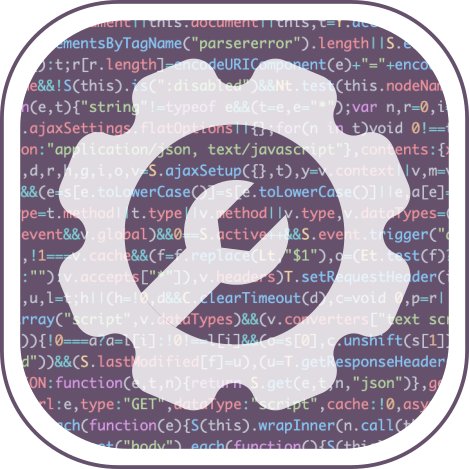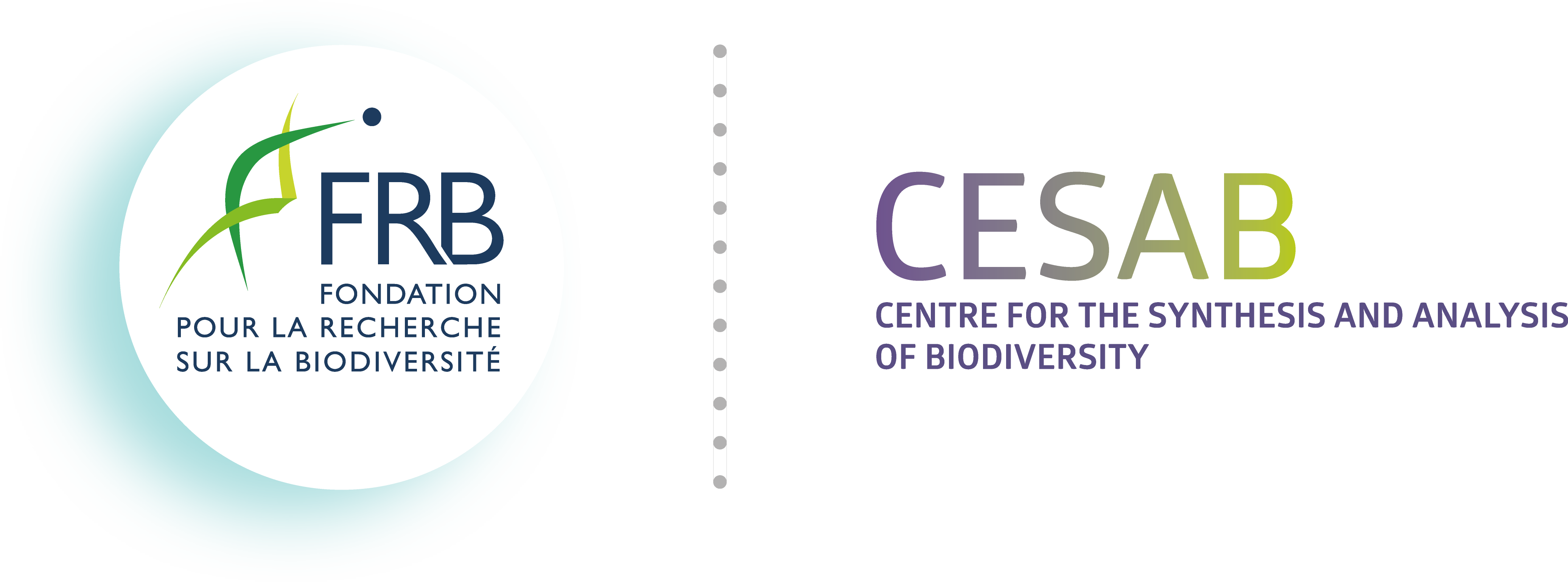Context
Research compendiumfor file organization- Writing
functionsfor code optimization Quarto|RMarkdownfor literate programminggitfor version controlGitHubfor sharing & collaboration
All these tools aim to make your code and data more reproducible.
What about the computational environment?
- packages (and versions)
- version
- Software and system libraries
- Operating system
Context
Research compendiumfor file organization- Writing
functionsfor code optimization Quarto|RMarkdownfor literate programminggitfor version controlGitHubfor sharing & collaboration
All these tools aim to make your code and data more reproducible.
What about the computational environment?
- packages (and versions)
- version
- Software and system libraries
- Operating system
What is the issue with packages?
- Packages rapidly change over time (versions)
- Code breaks between major versions
- Accessible from different repositories (CRAN, GitHub, R Universe, etc.)
- Only one version of a package can be installed
- A package can have many dependencies
Questions
- Will my project work on another laptop?
- Will my project work in the future?
- How to deal with projects requiring different versions of a same package?
We have to specify, the required packages, their versions, and the repositories in which they are accessible!
The renv package
| Function | Description |
|---|---|
init() |
Initialize renv in a project |
status() |
Check consistencies between lockfile & project library |
snapshot() |
Record current state of the project library in the lockfile |
restore() |
Restore project library from a lockfile |
install() |
Install packages in the project library |
remove() |
Remove packages from the project library |
deactivate() |
Temporary deactivate renv for the project |
activate() |
(Re)activate renv in the project |
Library vs. package
PACKAGE
A well-structured collection of functions, documentation, data, and tests.
LIBRARY
A directory in which packages will be installed.
Library vs. package
PACKAGE
A well-structured collection of functions, documentation, data, and tests.
LIBRARY
A directory in which packages will be installed.
Library vs. package
PACKAGE
A well-structured collection of functions, documentation, data, and tests.
LIBRARY
A directory in which packages will be installed.
[1] is the User library
[2] is the System library
Library system

Library system

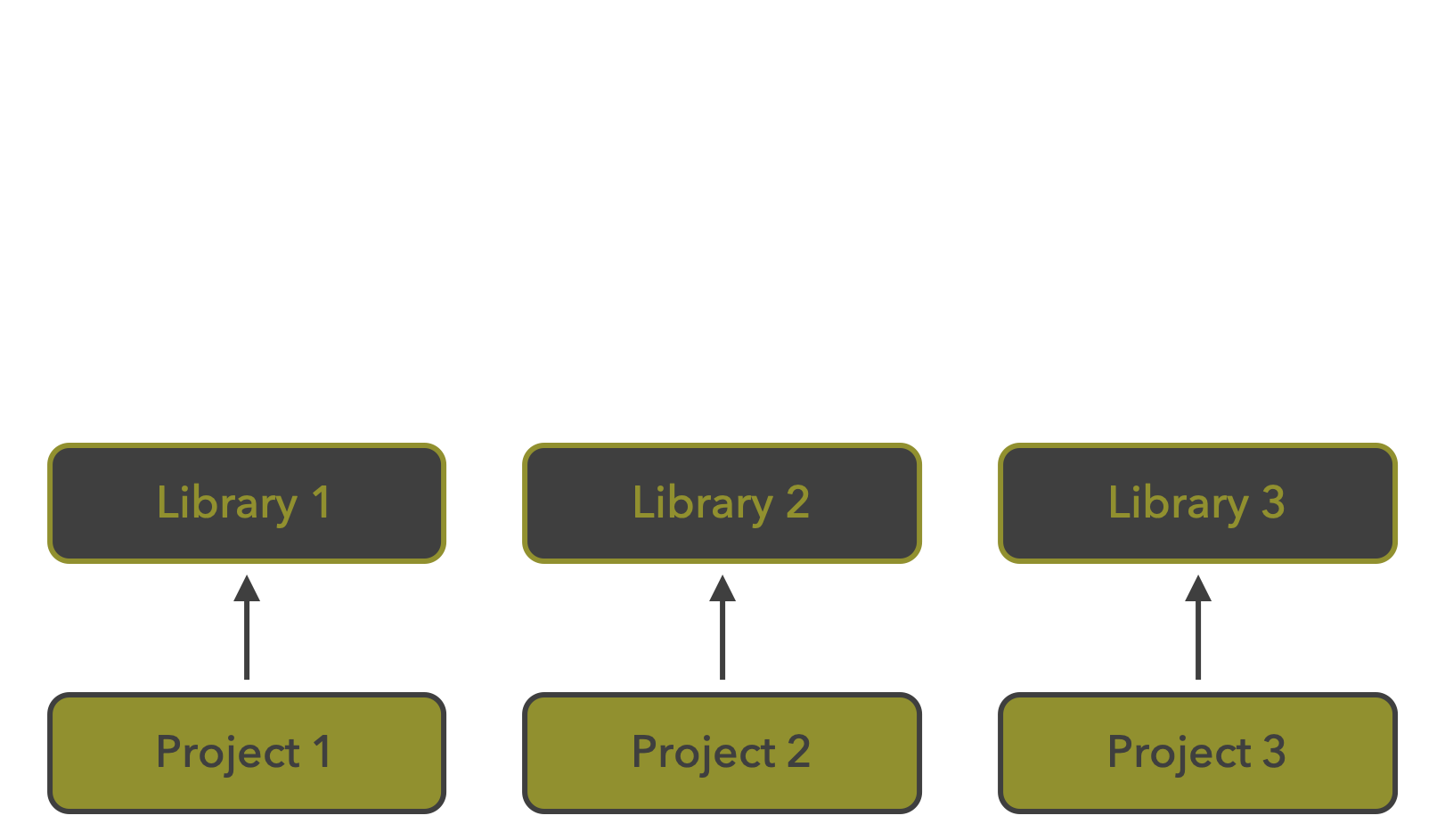
renvLibrary system

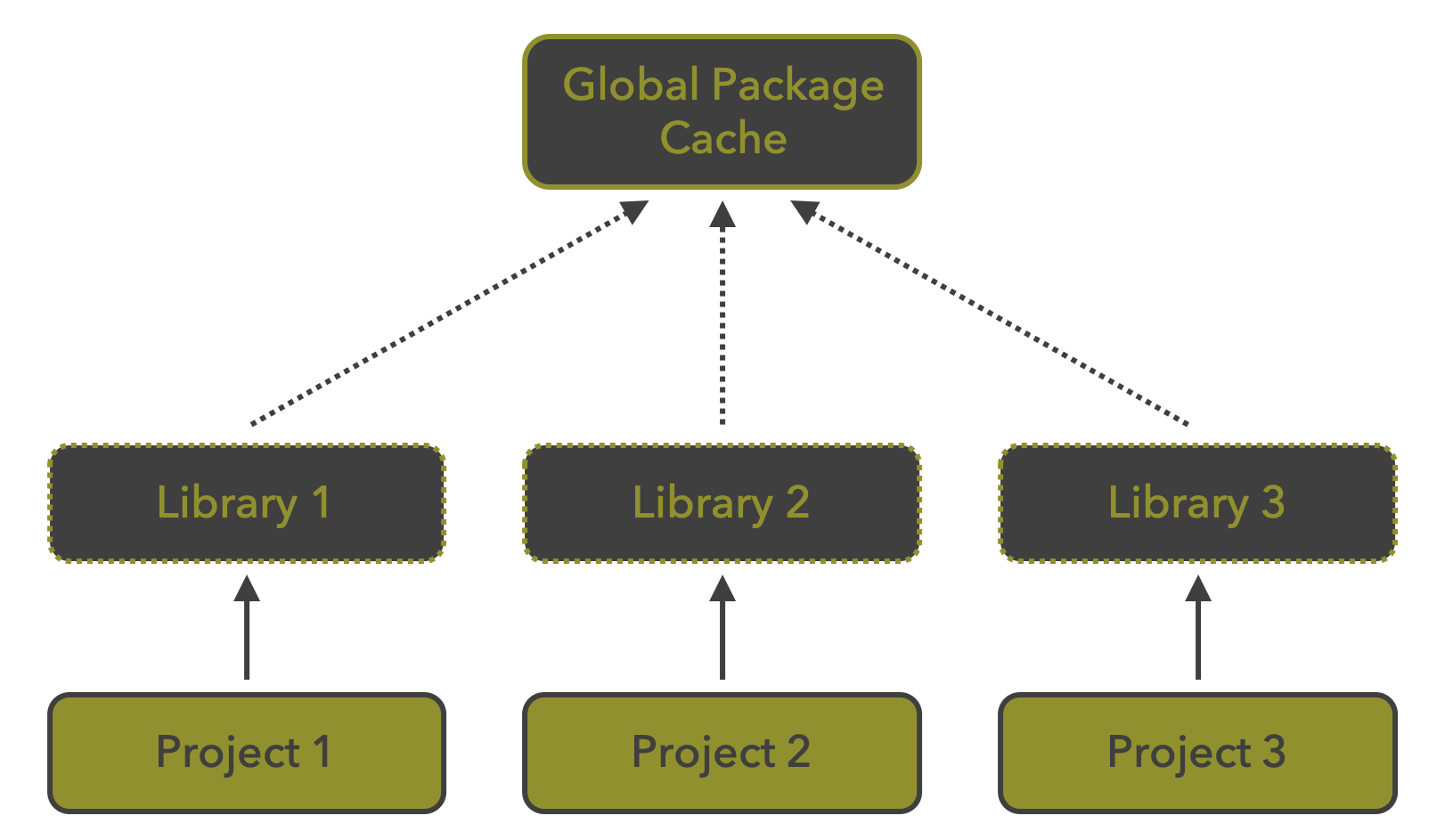
renvInitialize renv in a project
R version 4.4.2 (2024-10-31) -- "Pile of Leaves"
Copyright (C) 2024 The R Foundation for Statistical Computing
Platform: x86_64-pc-linux-gnu
- Project '~/Documents/myproject' loaded. [renv 1.0.11]
>Alternatively, for a new project:
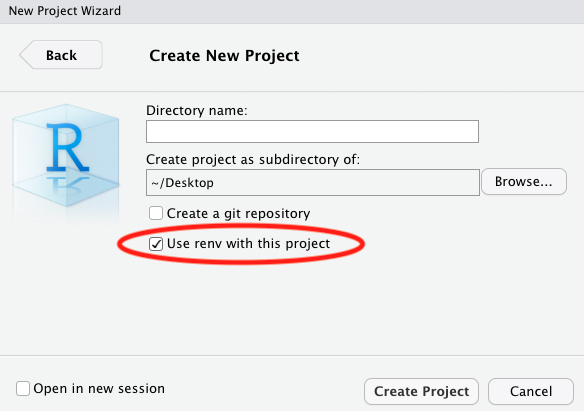
What happened?
.
├── .Rprofile
│
├── renv/
│ ├── .gitignore
│ ├── activate.R
│ ├── library/
│ └── settings.dcf
│
└── renv.lockWhat happened?
.
├── .Rprofile # Activate renv on project opening
│
├── renv/
│ ├── .gitignore
│ ├── activate.R
│ ├── library/
│ └── settings.dcf
│
└── renv.lockWhat happened?
.
├── .Rprofile # Activate renv on project opening
│
├── renv/
│ ├── .gitignore # Ignore large renv files (e.g. packages)
│ ├── activate.R # R script to launch renv
│ ├── library/ # R packages
│ └── settings.dcf # renv settings
│
└── renv.lockWhat happened?
.
├── .Rprofile # Activate renv on project opening
│
├── renv/
│ ├── .gitignore # Ignore large renv files (e.g. packages)
│ ├── activate.R # R script to launch renv
│ ├── library/ # R packages
│ └── settings.dcf # renv settings
│
└── renv.lock # Packages metadata, a.k.a the LockfileThe lockfile
It’s a simple JSON (JavaScript Object Notation) file that specifies package metadata:
- package name
- package version
- package repository URL
Preview of a lockfile (renv.lock)
{
"R": {
"Version": "4.4.2",
"Repositories": [
{
"Name": "CRAN",
"URL": "https://cloud.r-project.org"
}
]
},
"Packages": {
"renv": {
"Package": "renv",
"Version": "1.0.11",
"Source": "Repository",
"Repository": "CRAN",
"Requirements": [
"utils"
],
"Hash": "47623f66b4e80b3b0587bc5d7b309888"
}
}
}The lockfile
It’s a simple JSON (JavaScript Object Notation) file that specifies package metadata:
- package name
- package version
- package repository URL
Preview of a lockfile (renv.lock)
To collaborate you only need to share the renv.lock
{
"R": {
"Version": "4.4.2",
"Repositories": [
{
"Name": "CRAN",
"URL": "https://cloud.r-project.org"
}
]
},
"Packages": {
"renv": {
"Package": "renv",
"Version": "1.0.11",
"Source": "Repository",
"Repository": "CRAN",
"Requirements": [
"utils"
],
"Hash": "47623f66b4e80b3b0587bc5d7b309888"
}
}
}Working w/ renv
renv::status()is your friend:
Use this function at any time to check inconsistencies between lockfile, library, and dependencies
Working w/ renv
renv::status()is your friend
Use this function at any time to check inconsistencies between lockfile, library, and dependencies
Package used but not installed in the project library
Working w/ renv
renv::status()is your friend
Use this function at any time to check inconsistencies between lockfile, library, and dependencies
Package used but not installed in the project library
Working w/ renv
renv::status()is your friend
Use this function at any time to check inconsistencies between lockfile, library, and dependencies
Package used but not installed in the project library
Installing packages
- Use the function
renv::install()to install packages in your project library
You can install the latest version of a package, a specific version of a package, a package from GitHub, GitLab, etc.
Updating the lockfile
- Use the function
renv::snapshot()to update the lockfile (renv.lock)
This function will add and/or remove package metadata in the lockfile
- We remove the
fspackage metadata from the lockfile - We add the
clipackage metadata to the lockfile
Collaborating w/ renv
- Just share the
renv.lockfile
Then your colleague will have to initialize renv in the project and follow instructions:
## Initialize renv & restore environment ----
renv::init()
## This project already has a lockfile. What would you like to do?
##
## 1: Restore the project from the lockfile.
## 2: Discard the lockfile and re-initialize the project.
## 3: Activate the project without snapshotting or installing any packages.
## 4: Abort project initialization.
##
## Selection: 1
## The following package(s) will be updated:
##
## # CRAN -----------------------------------------------------------------
## - fs [* -> 1.6.5]
## - renv [* -> 1.0.11]
##
## # Downloading packages -------------------------------------------------
##
## ...
##
## # Installing packages --------------------------------------------------
## - Installing fs ... OK [linked from cache]
## - Installing renv ... OK [built from source and cached in 8.6s]
##
## - Project '~/Documents/myproject' loaded. [renv 1.0.11]All packages (w/ the good version) listed in the lockfile will be automatically installed in the project library
Recommendations
Use renv at the end of the project to freeze your packages environment and share the renv.lock
Do not forget to add renv/ and .Rprofile to the .gitignore
